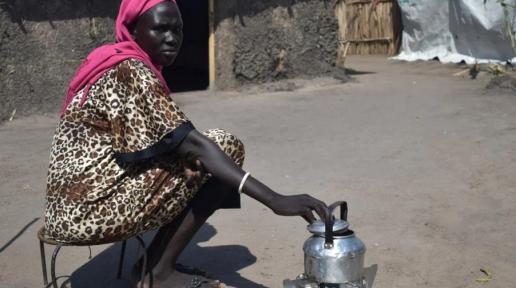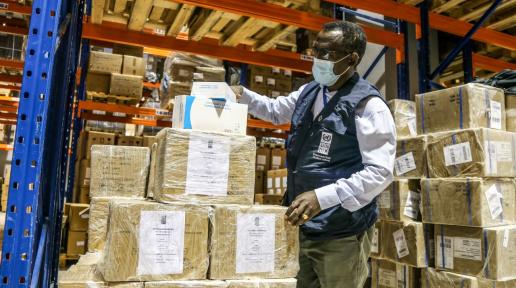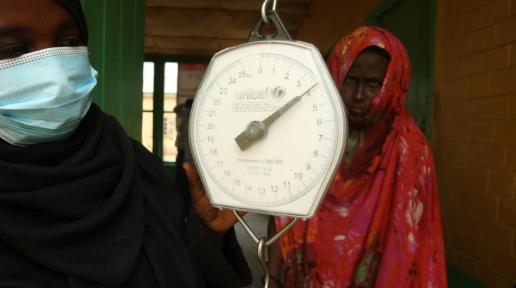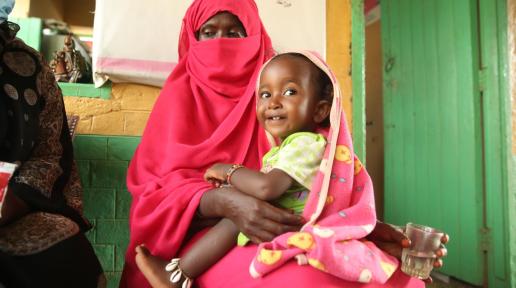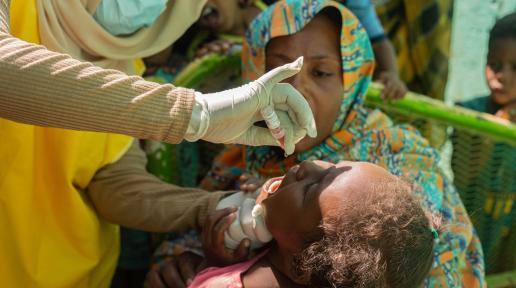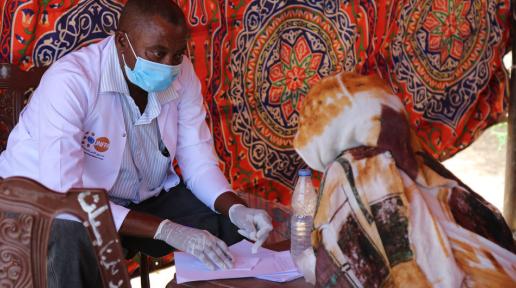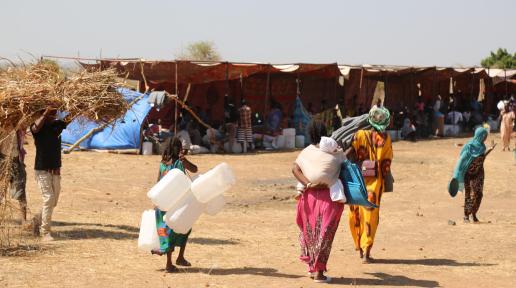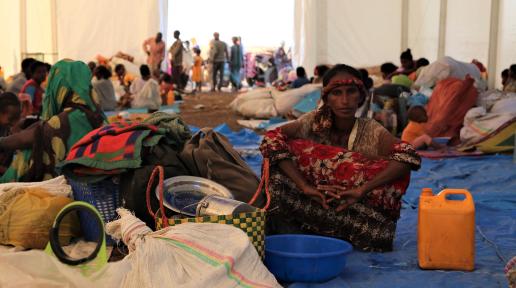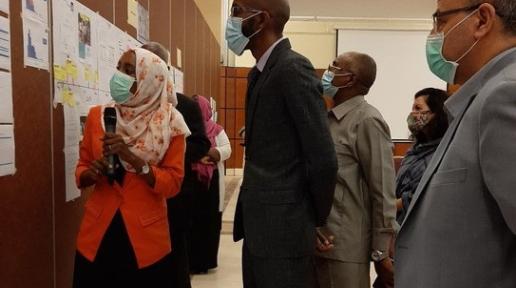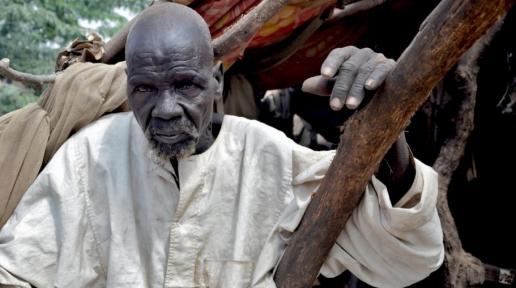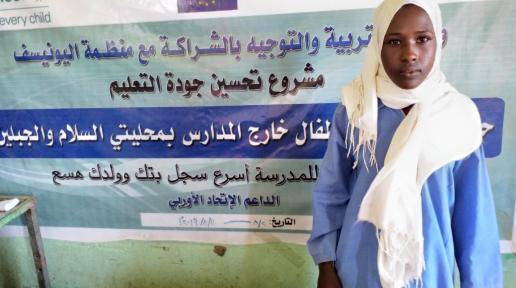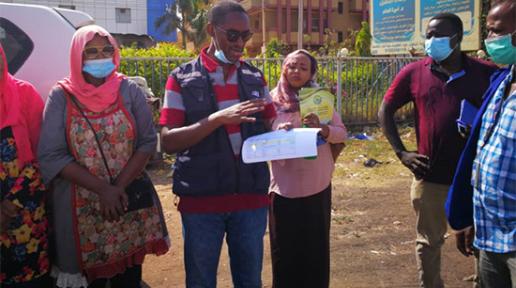Story
22 October 2025
Polio stops here: Hanan’s mission to protect every child in Darfur
Years of listening, talking, and addressing fears around vaccines are paying off for Hanan, a vaccinator in Zalingei. Today, wherever she goes, children follow- and parents welcome her warmly. Their trust is the result of years of dedication and genuine care. Polio in DarfurWhen Hanan heard about the new polio outbreak in Darfur, she was deeply worried. Even one case of this life-threatening disease puts all children at risk. With three cases confirmed in West and Central Darfur, the danger was real.An outbreak response, supported by UNICEF with funding from KSRelief, was quickly launched to protect children. And, as always, Hanan was on the frontline. Her name is now known in every neighbourhood — a testament to the trust she has earned over the years, which was essential to reaching every child under five years with lifesaving polio drops. Ending polio, one home at a timeVaccine carrier on her shoulder and assistant by her side, Hanan joined mobile teams moving door to door.For more than ten years, she has vaccinated children against killer diseases in Zalingei. Her reputation precedes her — families open their doors without hesitation.“I do not face any challenges with families,” she proudly says.“Parents know me and what I advocate for. So, they bring their children whenever they see me.”At the next house, Mozamil, a father of a four-day-old baby, is waiting.“I stayed home when I heard the vaccinators were coming today,” he says with a smile as Hanan gives his son the lifesaving drops.Overwhelmed with joy, Hanan adds: “It’s moments like this that push me to stay on the frontline for children. We cannot fail parents like Mozamil. We cannot stop even during the war — vaccination is even more important now because families are constantly moving across the border to and from Chad.” The cost of war on childhood immunizationsAs the war in Sudan drags on, basic health services — including routine immunization — have been disrupted, and in many areas completely stopped. Vaccine coverage has dropped, resulting in outbreaks of polio, measles, and other preventable diseases that have claimed children’s lives.In 2025 alone, a total of 465 Acute Flaccid paralysis (AFP) cases - suspected polio cases - have been reported in Sudan — a harsh reminder of the cost of interrupted immunization programmes.UNICEF continues to support the Ministry of Health to sustain immunization services against all odds — strengthening the cold chain, procuring and delivering vaccines even in the most hard-to-reach and insecure areas.But without trusted frontline workers like Hanan, vaccines would never become vaccinations.Through their efforts, over 500,000 children under five years were reached with polio drops in the latest outbreak response campaign — surpassing the target population.Community trust in vaccinators like Hanan, combined with UNICEF-supported outreach through local radio, megaphone announcements, door-to-door awareness, and engagement of religious leaders, helped address fear and hesitancy and ensured a high vaccine uptake.The road to the campaignAccessing Darfur remains challenging. But through coordinated efforts and cross-border support, the Federal Ministry of Health led a campaign that:Procured and delivered vaccines to the Darfur states;Supplied finger markers and other materials;Activated community awareness drives ahead of the campaign;Trained and deployed over 4,500 vaccinators and 4,500 registrars.Stopping polio, one step at a timeUnder the scorching sun, wearing her yellow cap and carrying her vaccine carrier, every step Hanan took was a step closer to her dream — a generation free from vaccine-preventable diseases.“The safety of children was my biggest motivation,” she says.“Whenever I saw a smiling, finger-marked child, I felt energized to keep going.”


